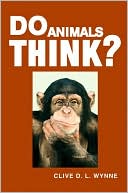Category Books
- Fiction Books & Literature
- Graphic Novels
- Horror
- Mystery & Crime
- Poetry
- Romance Books
- Science Fiction & Fantasy
- Thrillers
- Westerns
- Ages 0-2
- Ages 3-5
- Ages 6-8
- Ages 9-12
- Teens
- Children's Books
- African Americans
- Antiques & Collectibles
- Art, Architecture & Photography
- Bibles & Bible Studies
- Biography
- Business Books
- Christianity
- Computer Books & Technology Books
- Cookbooks, Food & Wine
- Crafts & Hobbies Books
- Education & Teaching
- Engineering
- Entertainment
- Foreign Languages
- Game Books
- Gay & Lesbian
- Health Books, Diet & Fitness Books
- History
- Home & Garden
- Humor Books
- Judaism & Judaica
- Law
- Medical Books
- New Age & Spirituality
- Nonfiction
- Parenting & Family
- Pets
- Philosophy
- Political Books & Current Events Books
- Psychology & Psychotherapy
- Reference
- Religion Books
- Science & Nature
- Self Improvement
- Sex & Relationships
- Social Sciences
- Sports & Adventure
- Study Guides & Test Prep
- Travel
- True Crime
- Weddings
- Women's Studies
Do Animals Think? »

Authors: Clive D. L. Wynne
ISBN-13: 9780691126364, ISBN-10: 0691126364
Format: Paperback
Publisher: Princeton University Press
Date Published: February 2006
Edition: (Non-applicable)
Author Biography: Clive D. L. Wynne
Clive D.L.Wynne is Associate Professor of Psychology at the University of Florida. He is the author of "Animal Cognition: The Mental Lives of Animals"
Book Synopsis
"Wynne's expert, lucid, sharply argued (and even witty) study provides a wonderful account of what is understood about how animals think and the serious challenges that face scientific study of these fascinating questions. It also offers very reasonable and suggestive thoughts about the place of humans within the rich and complex world of mental achievements and limitations."—Noam Chomsky, Massachusetts Institute of Technology
"I had more fun reading this book than I have had from any other book in a long time! It is clever, erudite, and accessible."—Jonathan Marks, University of North Carolina, Charlotte
"Clive Wynne has written a vitally important book. A fascinating and authoritative account of the latest research on animal minds, Do Animals Think? is also a much-needed corrective to the half-truths, exaggerations, and fairy tales that have become all too common in this field."—Stephen Budiansky, author of If a Lion Could Talk: Animal Intelligence and the Evolution of Consciousness
Publishers Weekly
Animal expert Wynne (Animal Cognition: The Mental Life of Animals), an associate professor of psychology at the University of Florida, delivers a detailed yet enjoyably written exploration of recent discoveries of modern animal behavior. In answering the question whether animals "think" or have the consciousness of self that humans do, his main point is simple: "We don't have to pretend that some species have consciousness equivalent to ours. They don't and they don't need it to matter to us and deserve our attention." Wynne is clearly arguing against the view of animal rights advocates such as Peter Singer and Jane Goodall who ascribe human attributes to animals. But Wynne is no reactionary-he strongly sympathizes with those who wish to improve the treatment of animals. But he forcefully argues that what animals may "know"-for example, the honeybee recognizes time of day-is "coded in the connections of the neurons; they are not conscious ideas." However, in contending that "the psychological abilities that make human culture possible... are almost entirely lacking in any other species," he delightfully presents the many remarkable abilities of such animals as the bat, which "sees" using echolocation, "one of the most astonishing discoveries made about any animal's world in the last fifty years"; and dolphins, who use a form of sonar. It helps his arguments that Wynne is often as entertaining as he is erudite ("Like journalists listening in for excitement on police radio frequencies, dolphins channel-surf through the sound frequencies fish use"). (Apr.) Copyright 2004 Reed Business Information.
Table of Contents
| 1 | What Are Animals? | 1 |
| 2 | The Secrets of the Honeybee Machine | 13 |
| 3 | How Noble in Reason | 46 |
| 4 | What Is It Like to Be a Bat? | 84 |
| 5 | Talk to Me | 106 |
| 6 | The Pigeon That Saved a Battalion | 139 |
| 7 | Monkey See, Monkey Do? | 162 |
| 8 | Dolphins Divine | 195 |
| 9 | Sandwiches to Go | 222 |
| References | 245 | |
| Acknowledgments | 261 | |
| Index | 263 |
Subjects
 Psychology
Psychology  Psychology - Theory, History & Research
Psychology - Theory, History & ResearchPsychology & Psychotherapy
 Psychology - Theory, History & Research
Psychology - Theory, History & Research  Animal Behavior & Psychology
Animal Behavior & PsychologyScience & Nature
 Nature
Nature  Animals - Habitats & Behaviors - General & Miscellaneous
Animals - Habitats & Behaviors - General & MiscellaneousScience & Nature
 All Science & Nature
All Science & Nature  Nature
NatureMedical Books
 Psychology & Psychotherapy
Psychology & Psychotherapy  Psychology - Theory, History & Research
Psychology - Theory, History & ResearchNonfiction
 Science & Nature
Science & Nature  Nature
NatureNonfiction
 Science & Nature
Science & Nature  All Science & Nature
All Science & Nature
